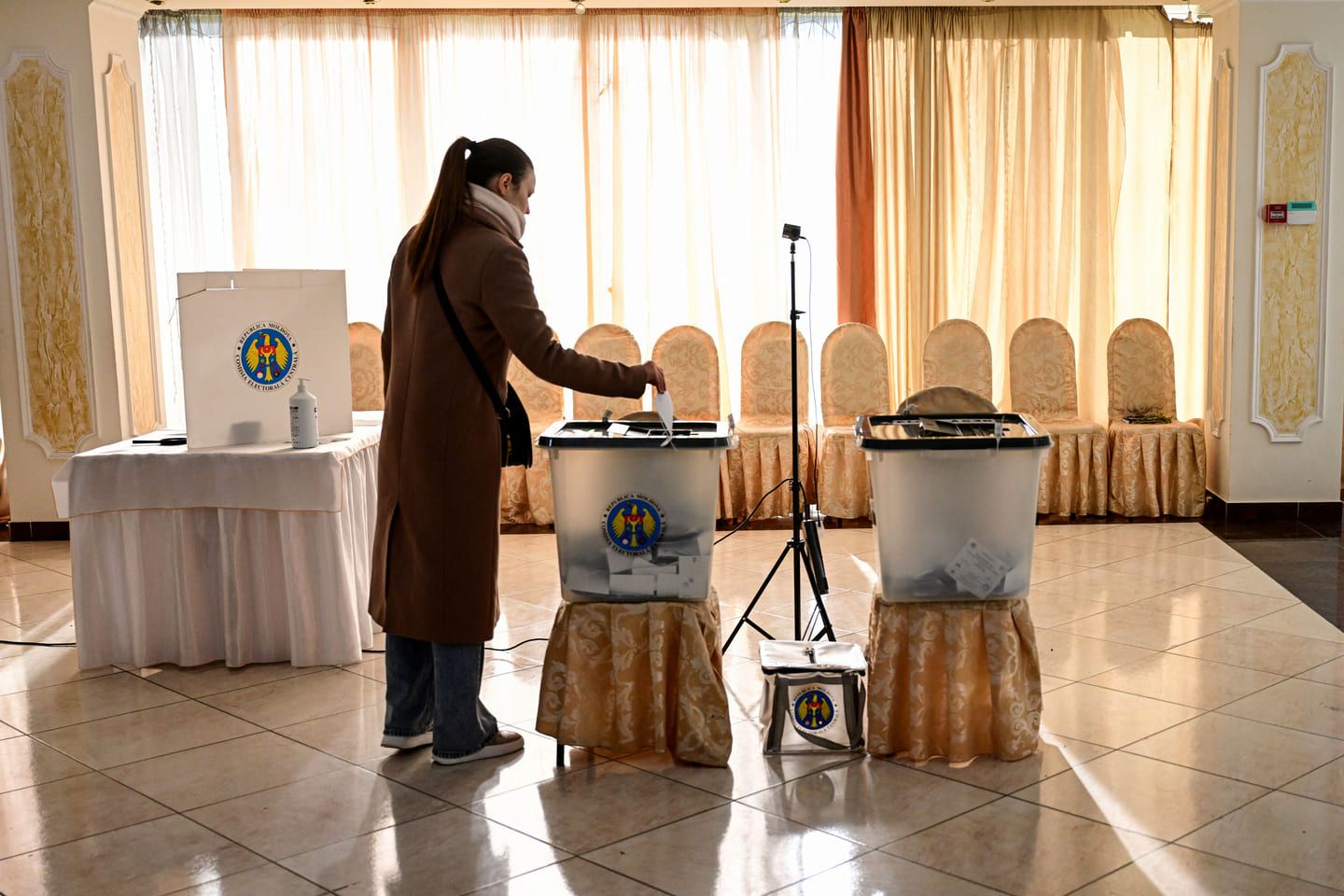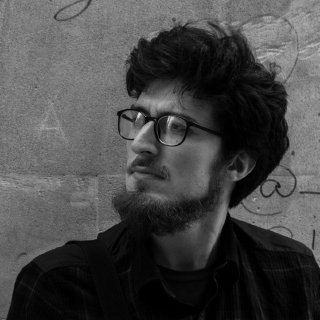What should happen when sanctions designed to weaken the Belarusian regime end up enriching and strengthening the Kremlin?
Denis Kishinevsky
{
"authors": [
"Balázs Jarábik"
],
"type": "commentary",
"blog": "Carnegie Politika",
"centerAffiliationAll": "",
"centers": [
"Carnegie Endowment for International Peace",
"Carnegie Russia Eurasia Center"
],
"collections": [
"Politika: The Best of 2025"
],
"englishNewsletterAll": "",
"nonEnglishNewsletterAll": "",
"primaryCenter": "Carnegie Russia Eurasia Center",
"programAffiliation": "",
"programs": [],
"projects": [],
"regions": [
"Moldova",
"Europe",
"Russia"
],
"topics": [
"Foreign Policy",
"Domestic Politics",
"Civil Society",
"Political Reform",
"EU",
"EU Enlargement"
]
}
Source: Getty Images
Should PAS fall short of an outright majority, political instability would likely follow. Potential coalition partners are considered either unreliable or politically compromised, leaving any post-election alliance fragile and prone to collapse.
Moldova’s upcoming parliamentary election on September 28 looks set to be hard-fought amid regional insecurity and shifting geopolitical alignments. Russia’s full-scale invasion of Ukraine has effectively turned Moldova into a geopolitical “dead end,” reinforcing for many Moldovans the perception that EU integration is not just a choice, but the only viable path forward. At the same time, Russia continues to exert influence through political interference, media operations, and its ties to Moldova’s Russian-speaking population.
The European Union has backed the government formed by Party of Action and Solidarity (PAS) with substantial political and financial support. In 2025 alone, Brussels committed around 300 million euros to Chișinău, equivalent to roughly 1.8 percent of Moldova’s GDP. The official narrative casts the election as a clear-cut choice between European integration and a war-hungry Russia. Yet for most voters, the most pressing concerns remain domestic—soaring energy bills, inflation, and dissatisfaction with governance—though these issues are increasingly refracted through the wider geopolitical frame.
PAS’s access to administrative resources, reinforced by strong external backing, could prove decisive in securing at least a simple majority. Yet with roughly 40 percent of voters still undecided—or unwilling to disclose their preferences—the outcome will hinge on whether security considerations wrapped in European integration outweigh the electorate’s immediate social and economic frustrations.
Russia’s invasion of Ukraine has profoundly shaped the electoral context in Moldova, pushing security concerns above social issues—at least for now. Prime Minister Dorin Recean has made security his foremost priority, while PAS has shifted within a single term from presenting itself as an agent of change to embodying continuity and stability.
The latest polling underscores both the fragility of Moldova’s party system and the public’s deep mistrust of politics. According to the iData survey of August 20, if parliamentary elections had been held that week, PAS would have come first with 25.8 percent of the full electorate (36 percent among decided voters), followed by the Patriotic Electoral Bloc with 19.7 percent (27.5 percent), the Alternativa Bloc with 8.1 percent (11.3 percent), and Our Party with 6.6 percent (9.2 percent). However, the subsequent iData poll of September 8 revealed a reversal, with the Patriotic Bloc rising to 36 percent, overtaking PAS at 34.7 percent, while Our Party polled 8.4 percent and Alternativa 7.9 percent.
This shift reflects a growing polarization of the electorate, with the center ground increasingly hollowed out—leaving Alternativa in particular under pressure. The emerging pattern mirrors last year’s presidential elections, suggesting that Moldova is headed toward a similarly polarized contest with little space for centrist alternatives.
Yet pollsters caution that the single largest “party” remains the undecided—including hidden voters—who make up roughly 40 percent of the electorate. This level of uncertainty makes electoral outcomes volatile and any prognosis precarious. Public priorities further complicate the picture. While corruption is identified as Moldova’s top problem (16.8 percent), voters expect parliament to focus on bread-and-butter issues first—higher wages and pensions (61 percent) and economic growth and jobs (54.6 percent)—followed by anti-corruption (48.4 percent). Geopolitical themes rank lower, which theoretically should give the opposition an advantage.
PAS benefits as much from the weakness of the opposition as from the broader political context. The Patriotic Bloc—created as a late-stage imitation of Alternativa—enters the race with resources and an emphasis on social issues, but it is hampered by competing egos, divergent ambitions, and an escalating reliance on radical rhetoric. Its cohesion has been further strained by former president Vladimir Voronin’s revelation that Igor Dodon, another former president and leader of the Party of Socialists that is part of the Patriotic Bloc, allegedly received nearly 1 million euros from the disgraced oligarch Vladimir Plahotniuc.
Voronin resents his low placement on the candidate list (fiftieth), while many Socialists are discontent with having to accommodate smaller partners at the cost of losing parliamentary seats. Despite these tensions, the bloc still expects a solid result. Yet its internal contradictions mean it may well fragment into rival factions after the election.
Alternativa, once viewed as the campaign’s dark horse, appears to have lost momentum. Romania’s decision to bar its leader, Chișinău Mayor Ion Ceban, from entering the country—a move interpreted in the capital as having been coordinated with Moldovan authorities—undermined its credibility, while persistent resource shortages, a lack of personnel, and internal discord have further weakened the bloc.
Ceban remains the group’s only figure with visible resources in Chișinău, but the bloc’s lack of personnel underscores the broader reluctance of elites to enter politics under the current conditions—especially given PAS’s close ties to Western-backed civil society, which further tilts the playing field. His Romanian ban not only complicates potential post-election bargaining, but could also open space for figures like former prime minister Ion Chicu, who retains Romanian ties, to shift closer to PAS.
The unpredictability of Renato Usatîi—leader of Our Party and a populist entertainer without a loyal base—adds another layer of uncertainty. His support could range anywhere from 3 to 10 percent, making him an unreliable coalition partner. Moscow retains leverage over him through his business interests in Russia—something many in Chișinău fear could be used to keep him in check.
Meanwhile, the late registration of Moldova Mare—an affiliate of the banned fugitive oligarch Ilan Șor’s structures—appears to be aimed less at electoral success than at fragmenting the opposition, especially the Patriots.
PAS is seeking to maximize its vote share by presenting itself as the only viable option. Behind the scenes, however, it is leaving open the possibility of post-election bargaining, including with Dodon’s Socialists or elements of Alternativa, calculating that these blocs are too heterogeneous to remain cohesive after the elections. Neither Usatîi nor Alternativa positions itself close to the Patriots, making the prospect of an anti-PAS government highly unlikely. The chances of nine rival party leaders setting aside their mutual distrust and personal ambitions to form a coherent pro-Moscow coalition are exceedingly slim.
External alignments further shape the electoral arena. The first-ever visit of the Weimar Triangle leaders (of France, Germany, and Poland) abroad on Moldova’s Independence Day, which coincided with the start of the election campaign, elevated the country’s profile and bolstered President Maia Sandu’s standing. EU financial backing remains decisive in sustaining the state’s capacity to pay bills and stabilize households, particularly through energy subsidies. Moldovans have endured a nearly 600 percent increase in energy bills—not solely the cost of war, as the government frames it, but also the consequence of a deliberate policy choice to sever energy dependency on Russia in line with EU positions.
President Sandu has warned of large-scale Russian interference in the September 28 parliamentary elections, claiming Moscow plans to channel at least 100 million euros in cryptocurrency to secure a pro-Russian majority and undermine Moldova’s sovereignty. These figures likely overstate the scale of the threat, reflecting the projections of the so-called A7 group, in which Ilan Șor plays only a nominal role. Investigative reporting by ZdG, which went undercover with Șor party “activists,” revealed paid protests, illicit payments, and a coordinated disinformation campaign as part of Russia’s hybrid operations against Moldova. Yet the Șor network itself is viewed as largely contained: its protests have been criminalized and its operational space narrowed.
Analysts in Chișinău remain divided over Russia’s objectives in the upcoming elections, with some viewing Moscow’s actions as opportunistic disruption rather than a coherent strategy. Some see a potential victory for pro-Russian forces through a coalition excluding PAS, while others anticipate broader destabilization via protests that could escalate into violence. Securing the wider Bessarabia region—Ukraine’s soft underbelly—appears to be a priority not only for Moscow but also for the EU, albeit with varying levels of engagement and concern, from Romania to France.
From the Moldovan government’s perspective, Russian activity spans multiple sectors: propaganda, protests, opposition support, cyber operations, and more. Over time, this attritional approach strains state resources, echoing tactics observed in Russia’s war in Ukraine. Some observers, however, see no coherent Russian strategy—rather, a patchwork of reactive measures aimed at addressing immediate challenges. Much of the activity reflects Șor’s personal attempts to influence local politics, rather than a fully coordinated strategy. PAS itself has opted not to fill the Russian-speaking information space, instead controlling it, reflecting a dual approach of consolidating influence while maintaining a degree of political competition.
Overall, Russia’s policy toward Moldova appears improvised, driven by competing interests and fragmented actors. The presence of multiple blocs, often working at cross-purposes and led by high-profile but poorly coordinated politicians, further reduces the chances of a unified pro-Russian electoral outcome.
The Moldovan authorities have followed a consistent strategy of portraying all opposition forces as pro-Russian, a framing that reinforces the geopolitical stakes of the election. In parallel, opposition parties remain under sustained legal and political pressure, further narrowing their room for maneuver. Raids on party structures have fueled a more radical tone—particularly among the Patriots—risking alienation from the centrist electorate, a space PAS increasingly occupies more effectively than Alternativa. Nearly all opposition leaders are constrained by sanctions, travel bans, or criminal cases, while the repeated framing of opposition forces as pro-Russian further strengthens PAS’s position as the only credible choice within the current geopolitical context, regardless of its performance in office.
Turnout engineering has become a central element of the government’s preparations. The authorities are actively mobilizing the diaspora vote, particularly in Western countries where PAS support is strongest. In the 2020 presidential elections, the diaspora accounted for 18 percent of the electorate; the government now aims to surpass that record to help PAS secure a parliamentary majority. The Central Electoral Commission has approved 301 polling stations abroad—seventy more than in the last presidential race—mostly in EU countries and the United States, while only two will open in Russia, sparking opposition criticism.
Chişinău is also introducing digital scanning at foreign polling stations to accelerate voting and reduce waiting times. Domestically, only twelve polling stations will serve residents of the breakaway region of Transnistria, far fewer than the forty-one requested by local authorities and the thirty-three available during the last presidential elections. The NGO Promo-LEX has criticized the measure as insufficient, noting that broader participation from Transnistria is key to long-term reintegration.
PAS may also benefit from developments surrounding Plahotniuc, who was detained in Greece in July and is due to be extradited to Moldova. Although his return is not expected until after the election, his arrest abroad is viewed as a government success. Nevertheless, the Justice Ministry’s handling of the extradition process has fueled speculation. Opposition voices suggest the delay could be part of a wider game—possibly involving U.S. actors—to weaken both Dodon and Sandu. Meanwhile, Plahotniuc’s former allies remain active, particularly in the judiciary, ensuring his influence continues to cast a shadow over Moldovan politics.
European concern over Moldova’s elections is rising, driven both by uncertainty over the results and by questions about post-election stability. Political instability is the baseline scenario, though the risk of outright destabilization—such as annulling results, as occurred in Romania—has declined.
PAS, despite lacking a fully articulated strategy, is expected to utilize the context to its advantage. Moldova’s younger generation, though relatively inexperienced, is exhibiting direction, reinforcing PAS’s dominance. The weakness and fragmentation of the opposition, combined with declining public receptivity to pro-Russian messaging, give PAS a realistic chance of securing a simple majority.
Should PAS fall short of an outright majority, political instability would likely follow. Potential coalition partners—whether Usatîi, fragments of Alternativa, or Dodon—are either unreliable or politically compromised, leaving any post-election alliance fragile and prone to collapse. External actors such as Plahotniuc or Șor may contribute to fragmenting the opposition, but they lack the capacity to trigger systemic destabilization. The ruling party, however, still commands both administrative leverage and strong external backing, enabling it to uphold a form of “securitized democracy” that functions under considerable strain.
Moldova’s trajectory thus points toward continued PAS dominance, yet one tempered by structural fragility. Stability remains conditional and provisional—sustainable only so long as PAS monopolizes the pro-European space and carefully calibrates coalition management. In practice, this balance is likely to hold—at least until the war in Ukraine reaches a conclusion.
Carnegie does not take institutional positions on public policy issues; the views represented herein are those of the author(s) and do not necessarily reflect the views of Carnegie, its staff, or its trustees.
What should happen when sanctions designed to weaken the Belarusian regime end up enriching and strengthening the Kremlin?

Denis Kishinevsky
The supposed threats from China and Russia pose far less of a danger to both Greenland and the Arctic than the prospect of an unscrupulous takeover of the island.

Andrei Dagaev
Western negotiators often believe territory is just a bargaining chip when it comes to peace in Ukraine, but Putin is obsessed with empire-building.

Andrey Pertsev
Unexpectedly, Trump’s America appears to have replaced Putin’s Russia’s as the world’s biggest disruptor.

Alexander Baunov
Baku may allow radical nationalists to publicly discuss “reunification” with Azeri Iranians, but the president and key officials prefer not to comment publicly on the protests in Iran.

Bashir Kitachaev